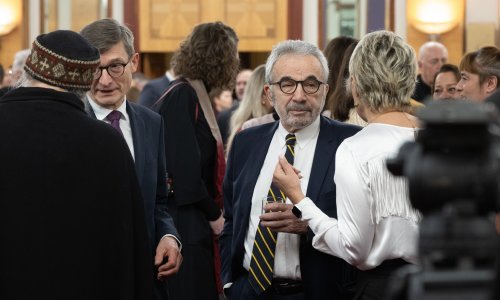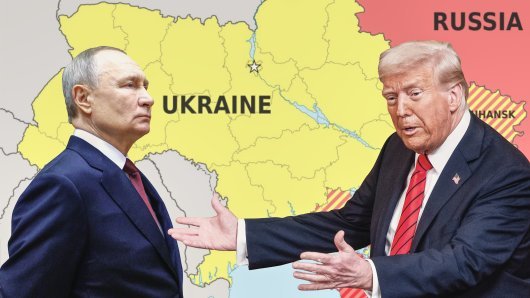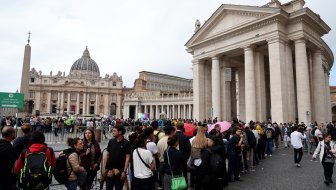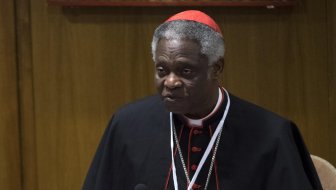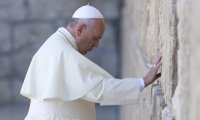Croatia will most likely sign the accession treaty with the European Union in the first half of December, the chairwoman of the parliamentary National Committee monitoring the accession negotiations, Vesna Pusic, said at a reception after a committee meeting.
"I don't have information about the specific date but I do have information that it will most likely be in the first half of December," Pusic told the press, adding that Croatia would certainly hold a parliamentary election before a referendum on EU accession.
"I think it's logical that the election be called at parliament's first autumn session and held sometime in early October... and it is my impression that the government thinks it would be better if the election was held in November," she said.
The National Committee reception was organised on the completion of Croatia's EU entry talks last week, bringing together ambassadors of EU countries, countries from the region with European prospects, the ambassador of Turkey, which is negotiating EU accession, and the ambassador of the US, which followed and helped in the negotiating process as well as in Croatia's accession to NATO.
"We invited those ambassadors as representatives of the countries which helped Croatia in the entire process, but also as individuals who worked with us in this long process, notably in its final part," Pusic said, adding that Croatia was helped in the negotiations "by all countries at different stages, when a problem in the entire process had to be solved by example or a solution or creative input."
Thanking the ambassadors of the countries in the region, Pusic said Croatia was joining the EU but was not moving away. "Geographically, we will stay right here where we have always been and our success is the region's success and the region's success must have a future and there is no success for us without the entire region's success."
Pusic thanked EU president Hungary, "which crossed the finish line with us and we will certainly remember this approach when the time comes for our neighbours to complete (their) negotiations and join (the EU)."
She also thanked the National Committee, which will continue working until the end of this parliament's term of office and monitor compliance with commitments, as well as the negotiating team led by Vladimir Drobnjak, who was also in attendance. In the next parliament, the role of the National Committee will be taken by a body that will become operational after the signing of the accession treaty.
Hungarian Ambassador Gabor Ivan congratulated the Croatian people and authorities.
What we have achieved is due to Croatia and not only the EU's Hungarian presidency. We tried to help, but without the efforts of the Croatian people, government, and National Committee, that would not have been possible, he said.
Poland took over the EU's rotating presidency from Hungary on July 1. Its ambassador Wieslaw Tarka congratulated Croatia on the big success.
We finished part of the job but the other part is still ahead of us. On behalf of the EU presidency and as Poland's ambassador, I would like to confirm that Poland will work on the accession treaty with Croatia and on further enlargement, which is one of the main priorities of the Polish presidency. I hope we will be able to sign the accession treaty very soon, he said.
A state secretary at the Ministry of Foreign Affairs and European Integration, Andrej Plenkovic, said the negotiating process comprised the collective work of all Croatian institutions, adding that the accession treaty would be signed as soon as possible after its approval, which "will certainly be before the end of this calendar year."
The parliamentary election will determine which prime minister will sign the accession treaty, said Neven Mimica, parliament deputy speaker, chairman of its European Integration Committee and member of the National Committee monitoring the entry talks.
Much more important than that and the focal point of Croatia's politics now is the referendum at which citizens will vote on the accession, he added.
It is high time the ruling coalition adopts a decision on the parliamentary election, Mimica said.




















